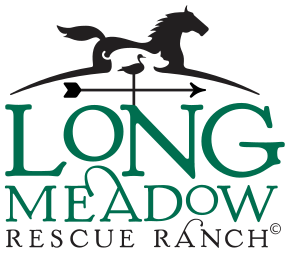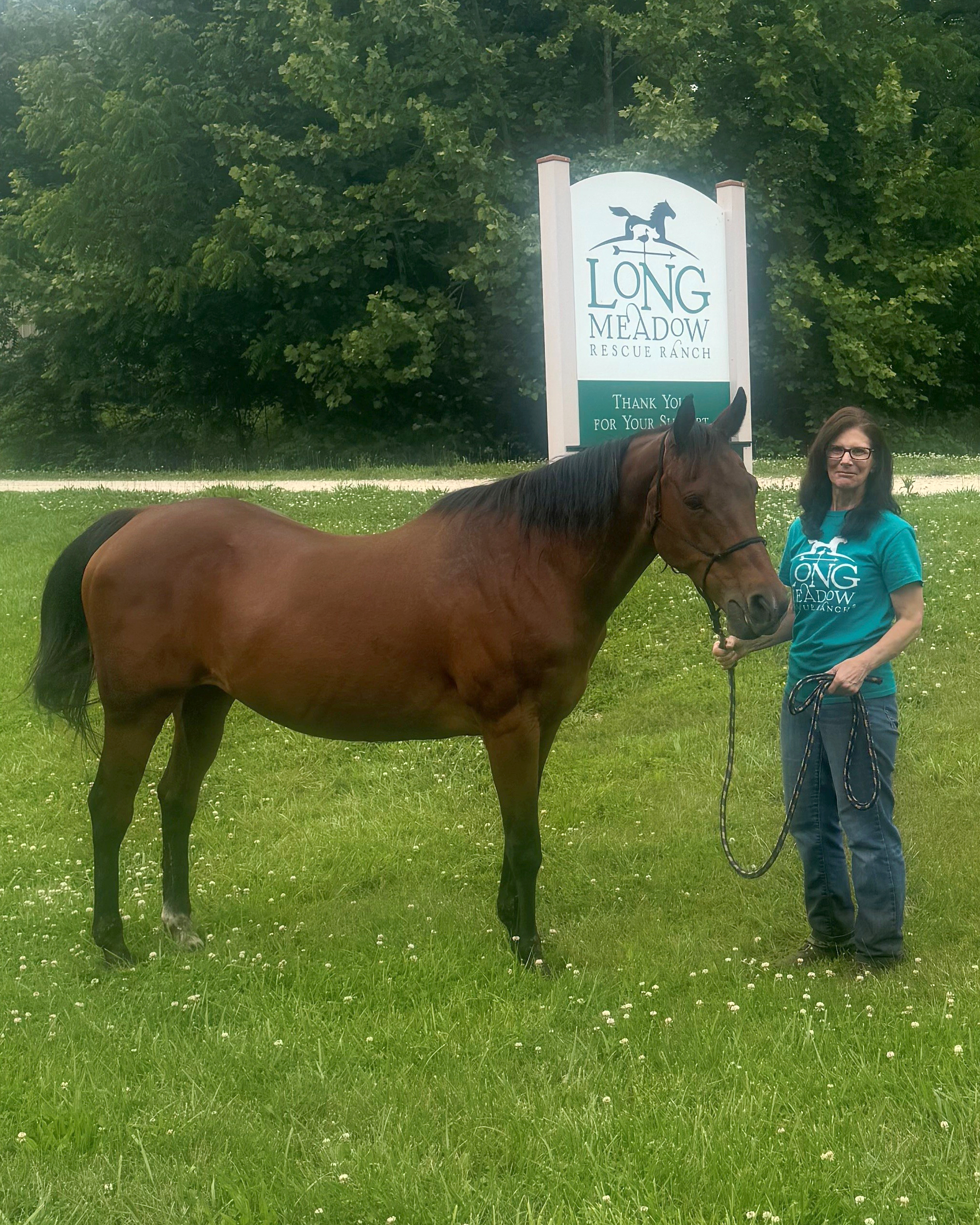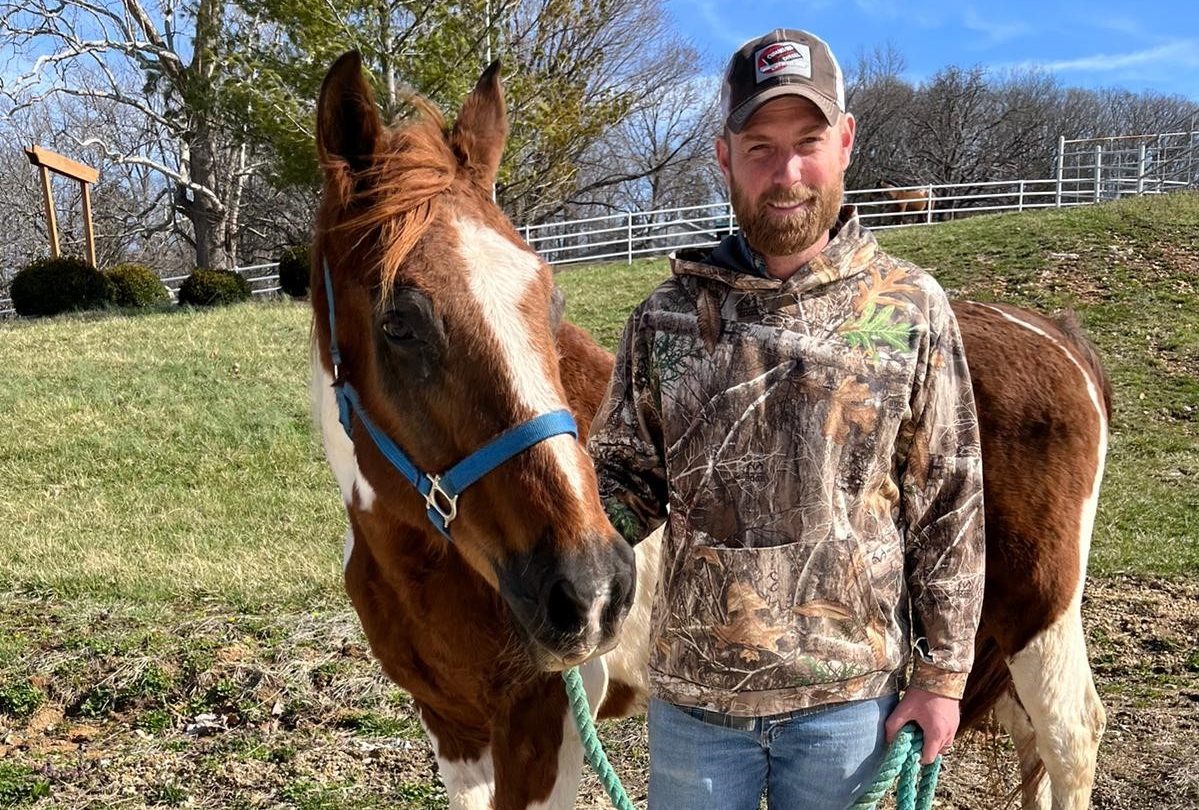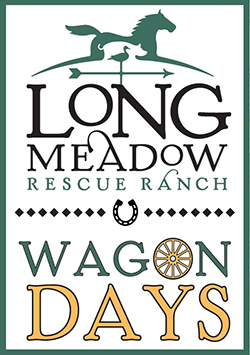The 26 horses rescued alive from an overturned tractor trailer bound for a slaughter house on Wednesday morning continue their long road to recovery.
“A horse trailer accident is a horse person’s worst nightmare. In this case, it was especially egregious because the trailer was double-stacked with horses and going to a slaughter house,” said Kathy Warnick, president of the Humane Society of Missouri.
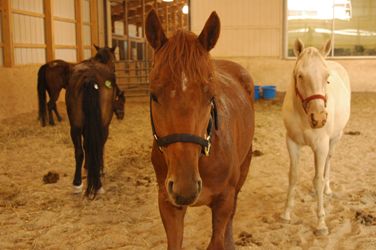
Four of the rescued horses recovering at the Humane Society of Missouri’s Longmeadow Rescue Ranch.
The 26 horses that were rescued alive have all experienced severe trauma, with many horses suffering multiple injuries, including cuts, lacerations, head trauma and even partial paralysis. The horses were taken to the Humane Society of Missouri’s Longmeadow Rescue Ranch in Union, Mo., and to several area equine hospitals for treatment. “The horses rescued face a long, uphill battle to recover from their injuries. Some of the mares are pregnant and veterinarians are watching them closely. The Humane Society of Missouri is doing everything in its power to obtain custody of the horses to provide them a safe haven and save them from slaughter,” said Warnick.
About Willie
Willie, named by rescuers on the scene for his will to survive because he was lying underneath a pile of dead and dying horses just after the accident, is a 4-year-old brown stallion quarter horse type. As a result of the accident, he had partial right side paralysis and breathing problems. He required IV fluids on the scene and at the triage area due to dehydration. Willie is now at a veterinary hospital with respiratory problems. He’s coughing and is in critical but stable condition.
About Freedom
Freedom, is a 4-year-old Gruella gelding, named by the Humane Society of Missouri’s Longmeadow Rescue Ranch staff because staff are doing everything to free him from slaughter. He has numerous cuts and scrapes, particularly on his legs. Freedom currently is being cared for at the Humane Society of Missouri’s Longmeadow Rescue Ranch. At one point the staff thought they might have to transport him to a veterinary hospital because the treatments required to take care of his wounds might cause him to be skittish and uncooperative. However, staff report he is very gentle and is allowing them to treat him without a whimper.
The 42 horses were on their way from Oklahoma to a slaughterhouse in Dekalb, Ill., one of the three slaughter houses in the United States. The ages of the horses involved in the accident ranged from yearlings to 20 years old. Some appeared malnourished. “It is a misconception that only old horses are taken to slaughterhouses. As we see in this case, horses of all ages are being shipped to slaughterhouses. There are alternatives to slaughtering horses, including adoption and supporting rescue groups like the Humane Society of Missouri’s Longmeadow Rescue Ranch,” said Warnick. Last year, nearly 100,000 American horses were either killed at one of the three United States slaughterhouses for export or shipped to Canada or Mexico for slaughter. On February 1, 2005, the American Horse Slaughter Prevention Act (H.R. 503) was introduced into Congress. The American Horse Slaughter Prevention Act prohibits the shipping, transporting, moving, delivering, receiving, possessing, purchasing, selling, or donation of horses and other equines to be slaughtered for human consumption and for other purposes. On September 7, the U.S. House voted 263-146 to pass the American Horse Slaughter Prevention Act, moving the country closer to preventing annual slaughter of nearly 100,000 horses in the United States for human consumption abroad. The Senate bill (S.1915) currently is awaiting action.”The Humane Society of Missouri vigorously supports the American Horse Slaughter Prevention Act. This incident is just the latest example of why it is so important to urge the Senate to pass their version of the bill,” said Warnick.
To help defer the costs of this rescue and the Humane Society’s efforts to obtain custody of these animals, people can donate online or call 314.951.1542.
Recent news
